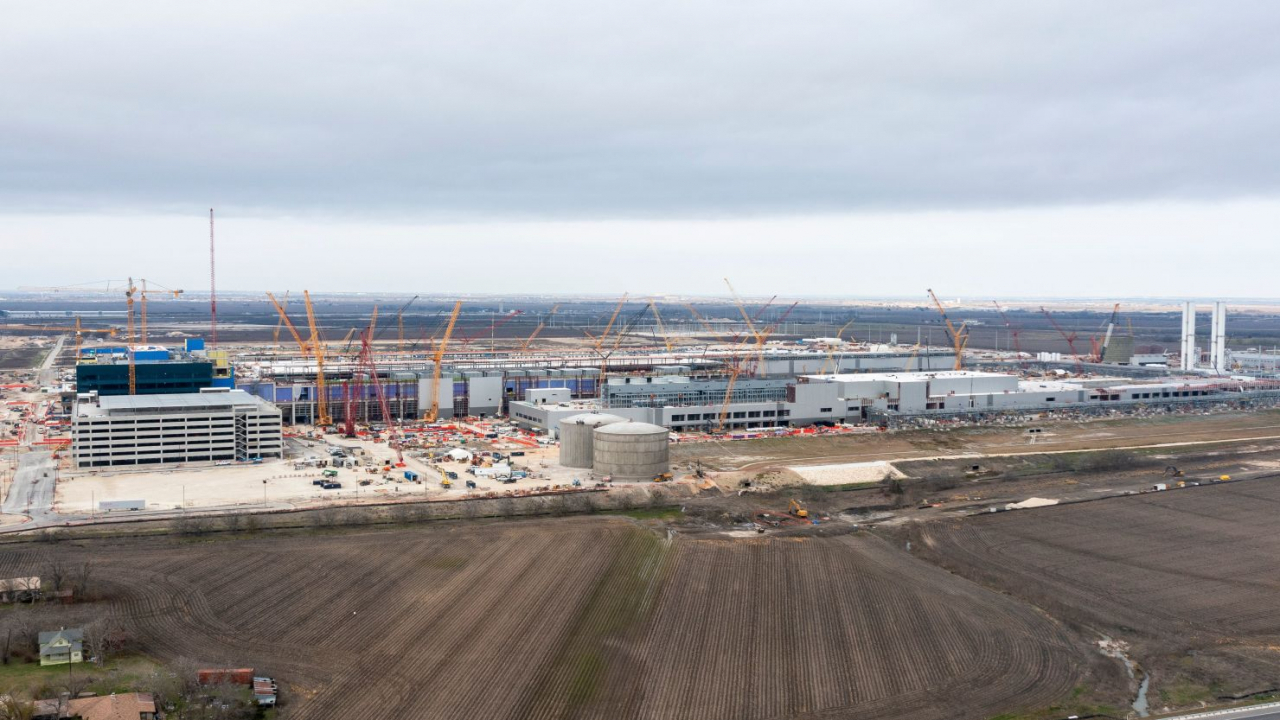 |
Aerial view of Samsung's chip plant in Taylor, Texas, in January (EPA-Yonhap) |
Amid growing uncertainties about the timely operation of Samsung Electronics' $40 billion semiconductor fabrication plant in Taylor, Texas, regional economic development chiefs in the state dismissed downsizing rumors, saying construction would be completed by mid-2025.
“There was a recent story that workers left, but Samsung every two years recycles in other employees. So the employees there came back to Korea, and they have a new group of employees or construction workers on site,” Dave Porter, executive director at the Williamson County Economic Development Partnership, told The Korea Herald in a recent interview in Seoul.
Porter was on a weeklong trip to Korea with Cedar Park City’s Chief Economic Development Officer Arthur Jackson.
Samsung, the world’s largest memory chip-maker, has delayed the operation of the new megasized plant in Williamson County from the end of 2024 to later in 2026, largely due to a market downturn. The decision has prompted rumors that the company may be cutting its workforce there amid challenges in securing foundry clients.
“It wasn’t that they were having issues. Every two years they rotate so the Koreans can come home. That's just kind of the way they operate,” Porter said, adding that Samsung also adopts the two-year rotation system for its older fab in Austin.
According to him, the construction is progressing actively, with some 6,000 workers working on-site daily. Porter estimated that the first fab will be completed between early and mid-2025 and start production between early and mid-2026 -- aligning with Samsung's forecast for increased demand.
As the Taylor fab project has progressed, Samsung anticipates that about 150 suppliers would need to come over to support the operation in Texas. The first wave of these companies has arrived, but they have been seen scaling back their preparations since early this year according to Samsung's timeline, the official explained.
"They (the suppliers) are told to stop (progressing with setting up their businesses in the US)," Porter said. "They (Samsung) will tell them to go again, but it will probably be sometime in next summer."
Among the key suppliers to Samsung are Hanyang ENG and Soulbrain, which have been expanding their US facilities. Hanyang ENG, which provides chemical and gas systems for Samsung's chip production, is relocating its US headquarters in Austin to Cedar Park in Williamson County and will be holding the opening ceremony next month.
Soulbrain is also investing $175 million to build a phosphoric acid manufacturing plant in Taylor to supply Samsung. The company has not yet started the construction, but aims to complete it by the time when the Samsung plant becomes operational.
For the delays, the suppliers are not to worry since many of them have other clients in the region, Jackson explained.
"If you look at the Greater Austin area, not just in Williamson County, there are so many other chip-related companies there like AMD, Applied Materials, Micron and Tokyo Electron," Jackson said. Williamson County is located just north of Austin.
"So there are other clients out there that they could possibly go after or that they already have contracts with."
Visiting Seoul to meet with partners and potential clients, the seasoned economic developers underscored how Williamson County and Cedar City are ready to help the "soft landing" of Korean companies in the US, especially for those looking to launch their first US-based headquarters.
"From real estate to business and incentives, we are like a one-stop shop. We're going to help you walk through the entire process of helping you start your set up, your business name, secure bank account," Jackson said.
This week, Williamson County plans to establish a sister partnership with the city government of Yongin, Gyeonggi Province, where the world's largest $471 billion megasized chip cluster is being developed.
"Korea is a very hot market right now for America. A lot of really neat technologies are coming out of Korea and we want to tap into that. We want to take advantage of not only what Samsung is doing, but the incredible opportunities in the technology sector," Porter said.







![[Today’s K-pop] Blackpink’s Jennie, Lisa invited to Coachella as solo acts](http://res.heraldm.com/phpwas/restmb_idxmake.php?idx=644&simg=/content/image/2024/11/21/20241121050099_0.jpg)